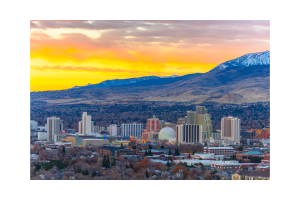With the end of the year approaching, you may be starting to look forward to what will happen next year with your rental properties. Will your current tenants stay for another year, or will you need to find new tenants? Will you need to increase rent prices, and will you buy or sell any properties before the new rent year begins?
Lease renewals can be a great way to keep your income from rentals steady. Read on to learn more about lease renewals and how you need to handle them to keep your good tenants happy.
Benefits of Lease Renewals
Before we dive into all the specifics of how to offer lease renewals, let’s talk some about the benefits of lease renewals. Turning over tenants at the end of each leasing cycle can be stressful and leave you with long periods of vacancy where no money is coming in. You have to advertise, check out new potential tenants, manage lease agreements, and so on.
If you have good tenants who pay their rent on time and take care of the property, lease renewals can be a great way to keep them around. You don’t have to go through the whole move-out process, and your tenants can continue on with you undisturbed. You may even bring in new tenants this way, as your happy tenants may recommend your property to friends who are looking for a place to rent.
Who to Offer Lease Renewals To
Of course, not all tenants are people you want sticking around at your property year after year. There may be some tenants who, although you can’t evict them, you don’t want to offer a lease renewal to. If you offer lease renewals to some tenants, do you have to offer them to everyone who’s technically abiding by the lease agreement?
Luckily, renewing a lease works like third-grade Valentine’s day cards. You can offer lease renewals only to tenants who take care of your property and pay their rent on time. As for the worst tenants, you can just let their lease expire and look for a tenant who will be a better fit for your rental.

Look at Rent Rates
Before you send out lease renewals, it’s important to take a look at a few different factors. First and foremost, you need to reexamine your rent rates and decide if they’re going to continue to work for the coming year. If not, you’ll need to decide how much to raise them before you send out your lease renewals.
Raising rent is a delicate balance between making sure you can make enough money and maintain good tenant retention. If you hike the prices too high, tenants will leave for other, more affordable rentals. If you do plan to increase rent, try to make some small upgrades to the property, and make rent increases a routine part of the lease agreement.
Send Rent Increase Notices
If you decide you do need to increase rent rates, you’ll need to send your tenants plenty of notice. This will give them time to look at their budget and figure out if the new prices will work for them. Many areas also have laws requiring landlords to send tenants a notice before raising their rent prices.
Make sure to send out your rent increase notices well before you send out your lease renewals. This will give the tenant time to consider whether they want to stay before they sign the lease renewal agreement. You and your tenants may both need to sign a copy of this notice to follow legal requirements in your area.
When to Send Lease Renewals
So once you’ve decided who to send lease renewals to, how early do you need to send them out? You want to give your tenants plenty of time to decide whether they’re staying and yourself plenty of time to find a new tenant if they aren’t. But if you send them too far in advance, your tenants may not yet know what their plans for the next year will be.
In general, it’s a good idea to send your lease renewals about ninety days before the current lease is set to expire. Ideally, you want to get a reply from your tenants within thirty days of sending the notice. This will give you a full sixty days to find a new tenant if your current tenant decides not to stay.

Details to Include
Take a seat and go over all the important details you need to include when you send out your lease renewal agreements. As we’ve discussed, make sure you include the rent rates for the next year, even if they won’t be changing. It’s also a good idea to include the tenant’s name and their property address so there’s no confusion about the agreement.
Make sure to mention the date the current lease expires, and clarify how long the new lease will last. Include the date by which you’d like a response to the agreement and an offer to send the new lease if they would like to renew. Finish by inviting your tenants to contact you with any questions or concerns, and sign your name at the end.
Learn More About Lease Renewals
Lease renewals can be a great way to keep your income as a landlord steady and keep your current tenants coming back. Make sure to send out rent rate notices before you send out your lease renewals so your tenants will have time to review them. And plan to send out the lease renewal notices about ninety days before the end of the lease.
If you’d like to learn more about lease renewals, check out the rest of our site at Rent Safe. We’re the new online tenant screening platform custom-designed by property managers for peace of mind. Contact us today and discover our easy-to-use software and user-friendly dashboard.








